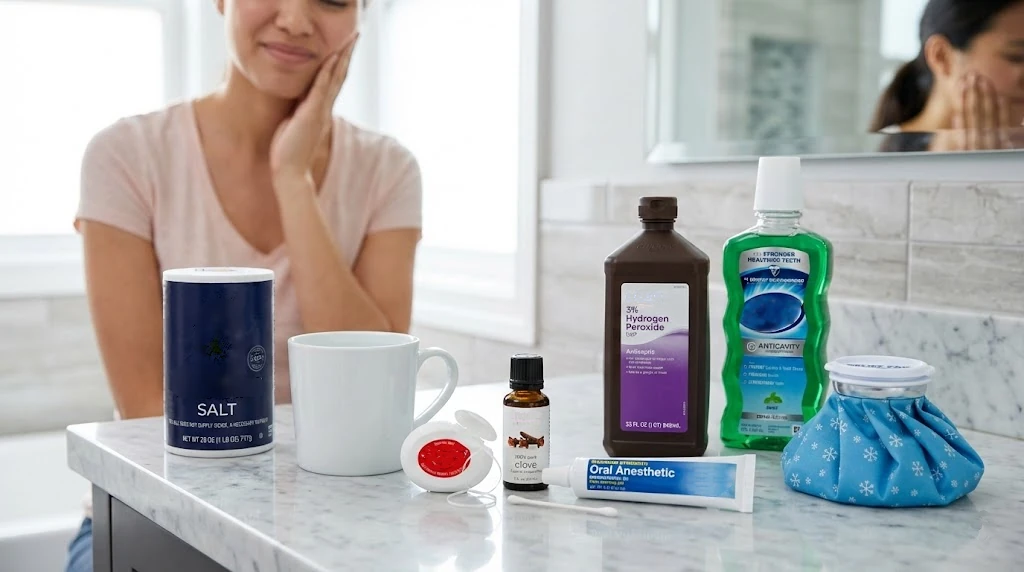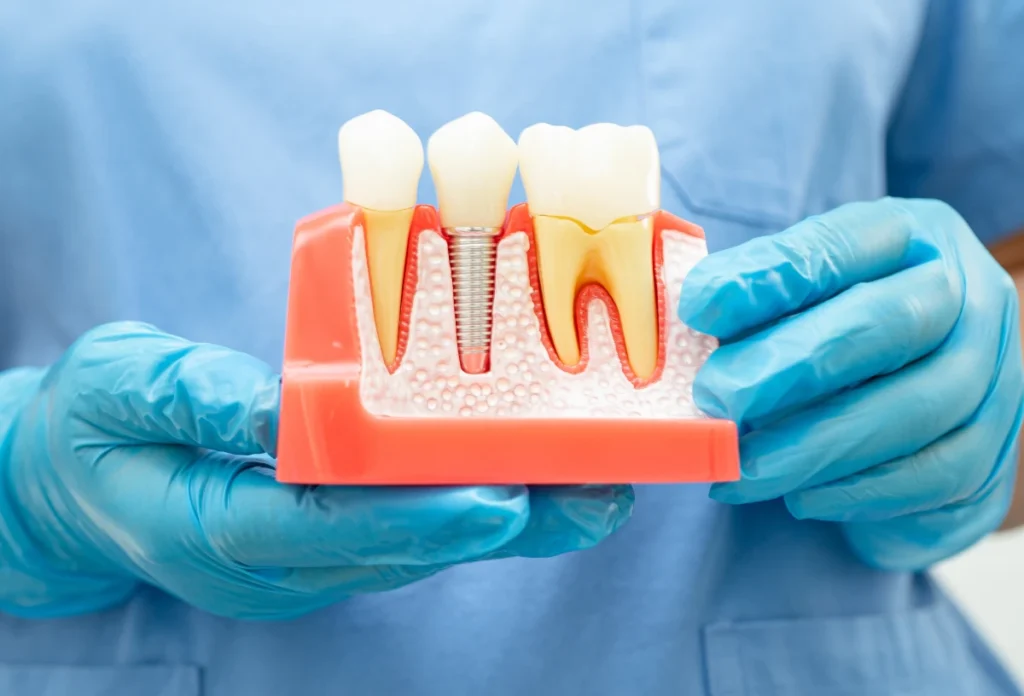Updated: 3/12/2020
Cold sores. Bitten cheeks. Bleeding gums.
We all experience multiple forms of mouth tissue damage throughout our lives. While the pain that accompanies many of these problems can be very discomforting, there are some measures you can take to ease the pain without having to go to a dentist.
Gingivitis (Gum Infection)
If you experience gum inflammation and bleeding, you may have a very common gum disease (or gum infection) called gingivitis. Though gingivitis causes very irritated and inflamed gums, you can easily remedy some of the pain by rinsing your mouth with warm salt water or a mixture of equal parts hydrogen peroxide and warm water. Swish the mixture well in your mouth, and rinse. Then brush your teeth, especially the infected areas. Brushing will most likely cause bleeding, but this actually helps to flush out the bacteria that is causing the sensitivity.
Canker Sores
Canker sores are those small little ulcers that show up in your mouth and are often sore. While the cause of these tiny irritations is a mystery, there are many things you can do to speed up the healing process, which typically takes 7-10 days without any treatment.
- Swish with an equal parts mixture of hydrogen peroxide and warm water. You can do this as much as desired.
- Use Orabase or Orabase B, the mouth band aid, to prevent irritation.
- Moisten a tea bag and apply to the affected area for 10-20 minutes to help ease discomfort.
- Apply ice to reduce irritation.
- Avoid spicy foods, for these will irritate the canker sore further.
- Swish with buttermilk, as it “coats” your mouth and soothes the pain.
Cold Sores
Cold sores are the itchy and painful blisters we sometimes get around our lips, which typically last about 7-10 days. Ice can be applied to cold sores to reduce discomfort and speed up healing. Lysine, one of the body’s essential amino acids, can also be used as a dietary supplement to prevent recurrence of cold sores. You can also buy Acyclovir, which has been found to drastically reduce the swelling of cold sores.
Bleeding from Tooth Extraction
If you’ve just had a tooth extracted, bleeding is not uncommon for the first 24 hours. To reduce the amount of bleeding, keep your tongue away from the affected area. You can also moisten a tea bag and bite down on it for 30 minutes a few times a day. Whatever you do, it’s important to NOT rinse your mouth, for that can wash away the clot and create more complications. If bleeding continues for more than 24 hours after the extraction, you should seek out professional attention immediately.
Traumatic Injuries
If you have recently experienced trauma in or around your mouth, you can stop bleeding by applying moderate and steady pressure to the injured area with a cold, damp cloth. After a few minutes, switch to an ice pack (or a frozen fruit or vegetable bag) wrapped in a towel to help reduce swelling. If the bleeding doesn’t stop, continue applying pressure and seek emergency care immediately.
Tissue damage in the mouth is very common and affects everyone. While pain and discomfort can often be eased right at home, if complications continue, help from a dental professional should be sought out immediately. Ask your dentist about other treatments you can try should pain continue.






